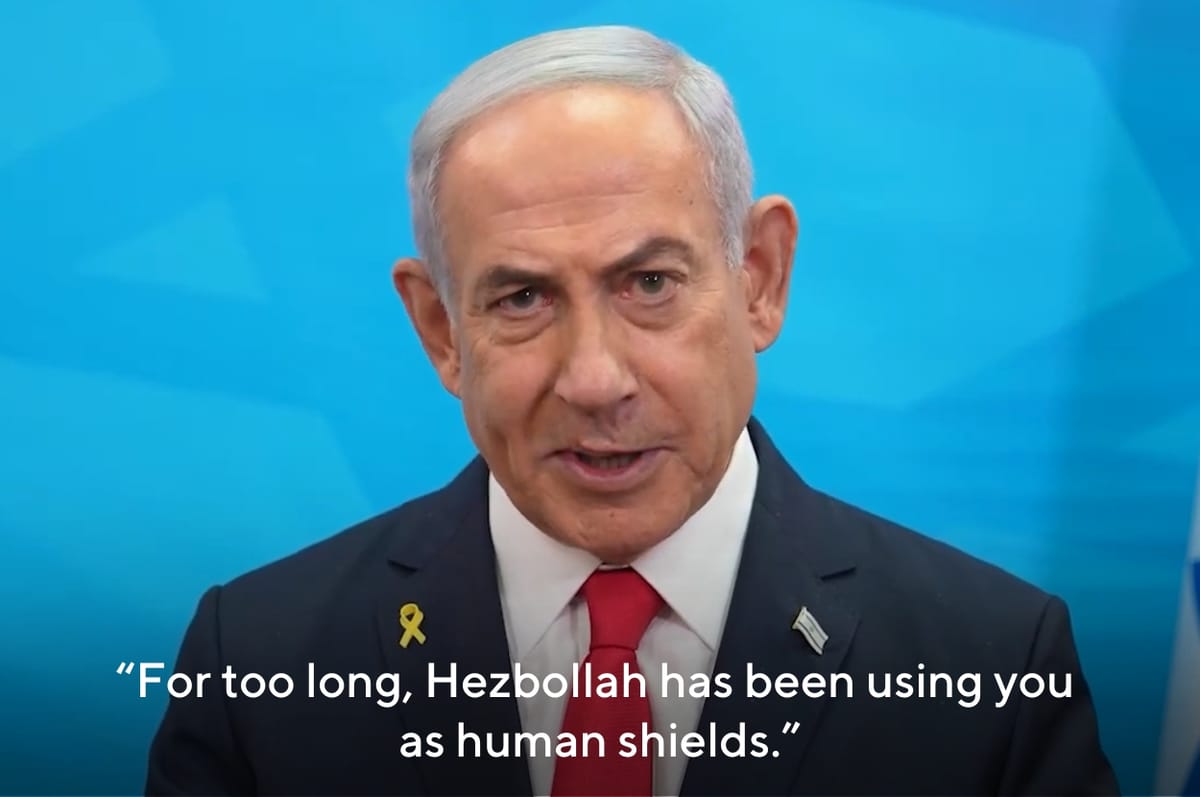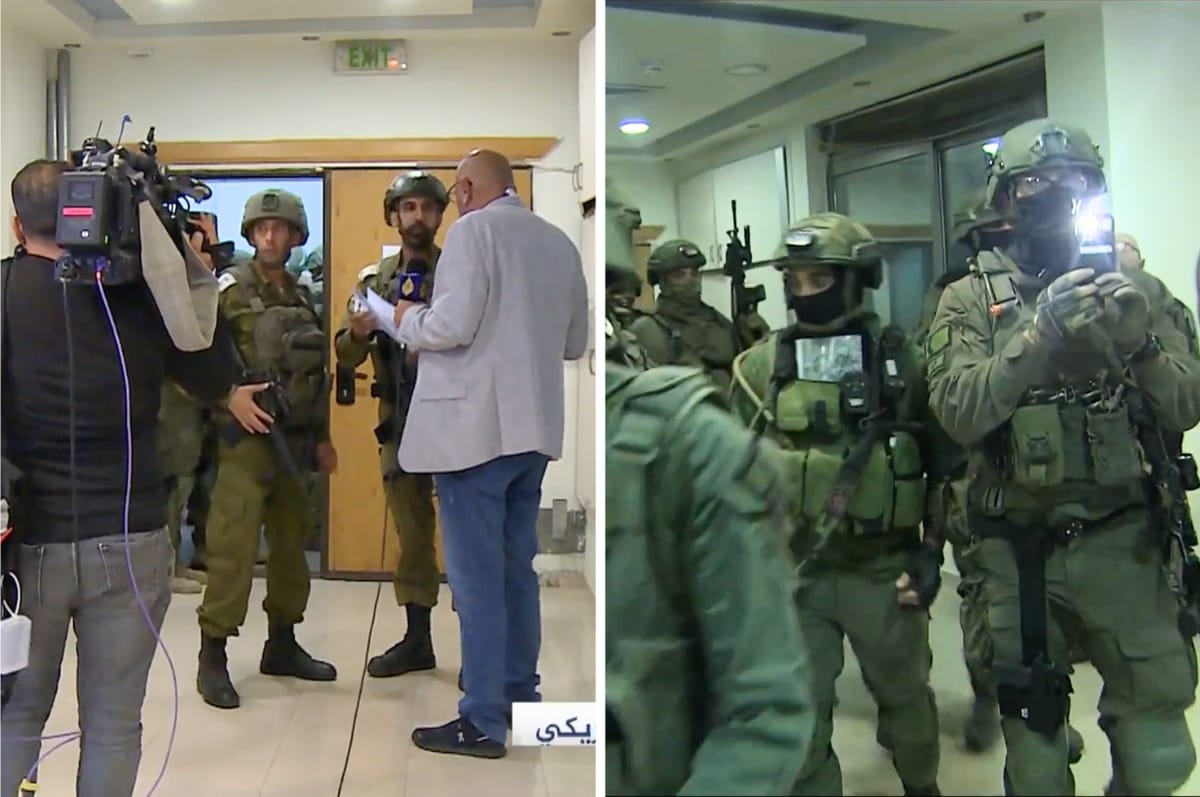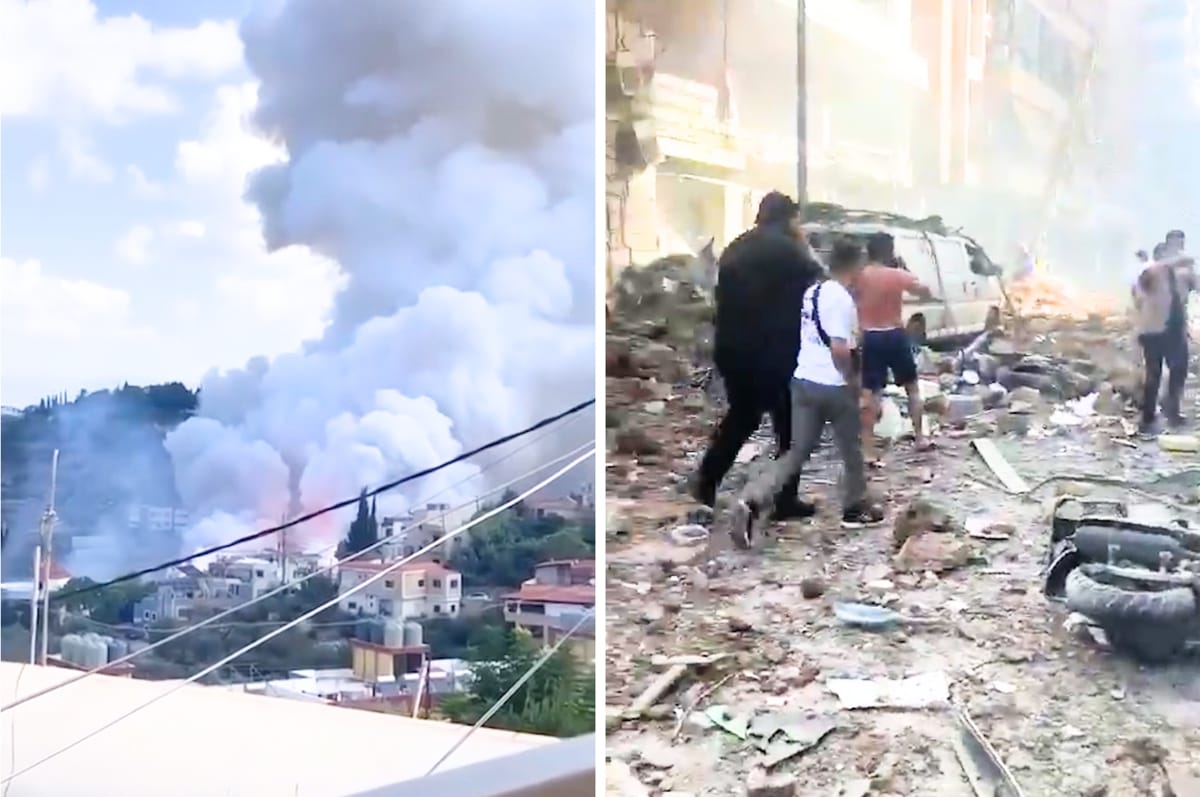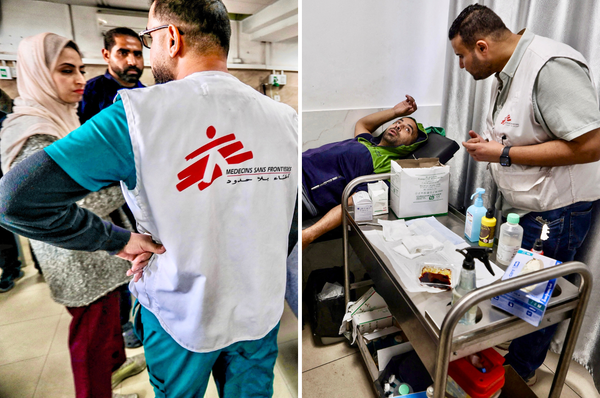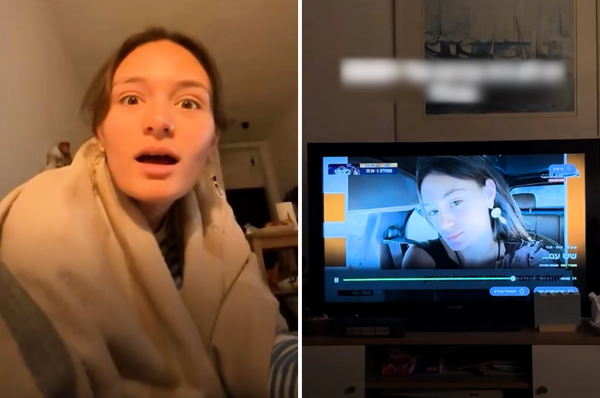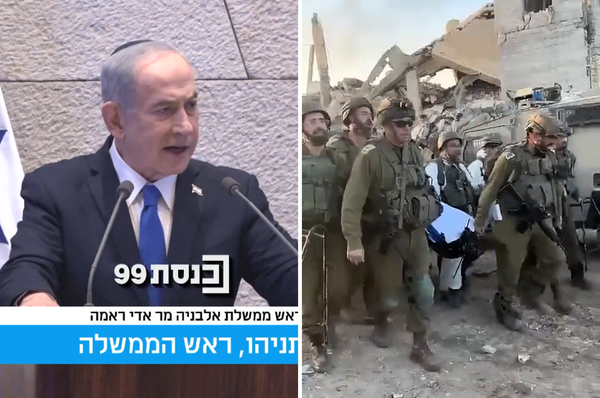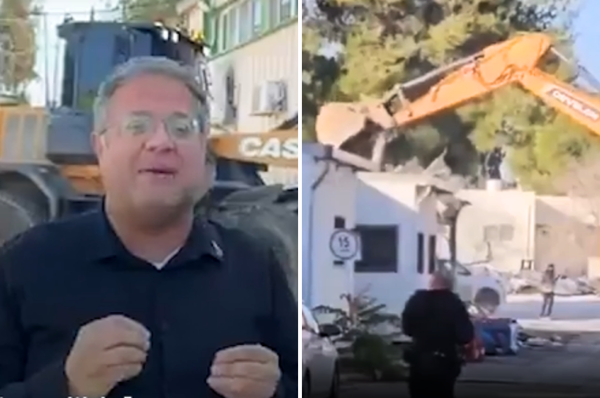Dozens Of Diplomats Walked Out Of Netanyahu’s UN Speech, Leaving Him To Address A Near Empty Room
Dozens of diplomats walked out ahead of Netanyahu's speech to protest Israel’s genocide on Gaza and its attacks on Lebanon.
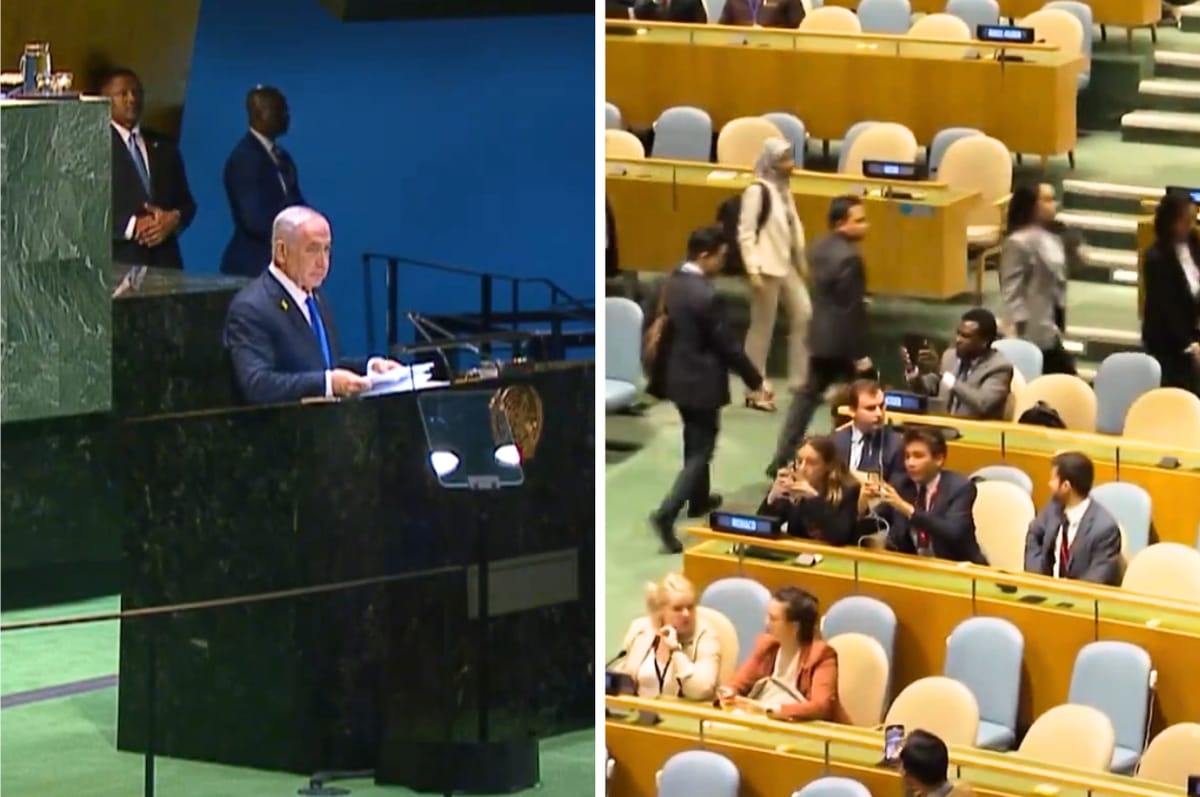
Dozens of diplomats walked out ahead of Israeli prime minister Benjamin Netanyahu's speech at the 79th session of the United Nations General Assembly (UNGA).
On Friday, Sep. 27, Netanyahu was left to address a mostly empty room after several delegations walked out to protest against Israel’s genocide on Gaza that has killed more than 41,586 Palestinians and its attacks on Lebanon.
Videos showed dozens of diplomats walking out, leaving empty chairs from Turkey, Brazil, Chile, Botswana and several other countries to a mix of boos and applause.
In response, Netanyahu called the UN an "antisemitic swamp" and vowed to continue fighting in Gaza and Lebanon until achieving "total victory".
He then presented two maps, where he had labeled countries in the Middle East region as either a “blessing” or a “curse”.
The countries in the “blessing” map include Israel and what he called its “Arab allies”, which are shown in green and include Egypt, Saudi Arabia, Sudan and India.
Netanyahu said he planned to build a “land bridge connecting Asia and Europe” and “will lay rail lines, energy pipelines, fiber optic cables, and this will serve the betterment of two billion people.”
He then went on to show a map of the “curse”, which includes Lebanon, Syria, Iraq, Iran and Yemen.
“Iran’s malignant arc has shut down international waterways, it cuts off trade, it destroys millions, destroys nations from within and inflicts misery on millions,” he said.
“On the one hand, a bright blessing, a future of hope. On the other hand, a dark future of despair,” he added.
In addition to warning Iran against aggression, Netanyahu reaffirmed that Israel will continue its war on Gaza and military operations against Hezbollah in Lebanon.
Shortly after Netanyahu’s speech, Israel launched a wave of massive air raids on Dahiyeh, a suburb in southern Beirut that continued early into Saturday, saying it was targeting Hezbollah’s headquarters.
The strikes killed Hezbollah’s longtime leader Hassan Nasrallah and further escalated tensions in the region.
